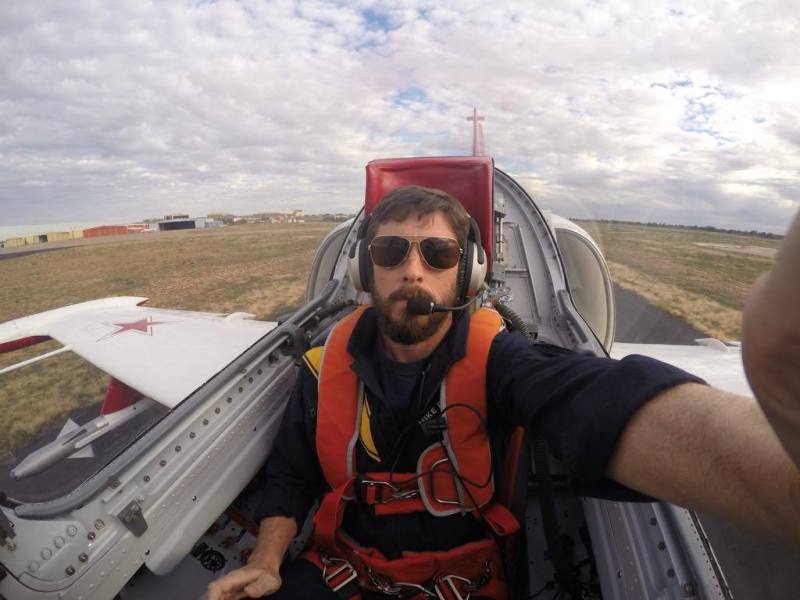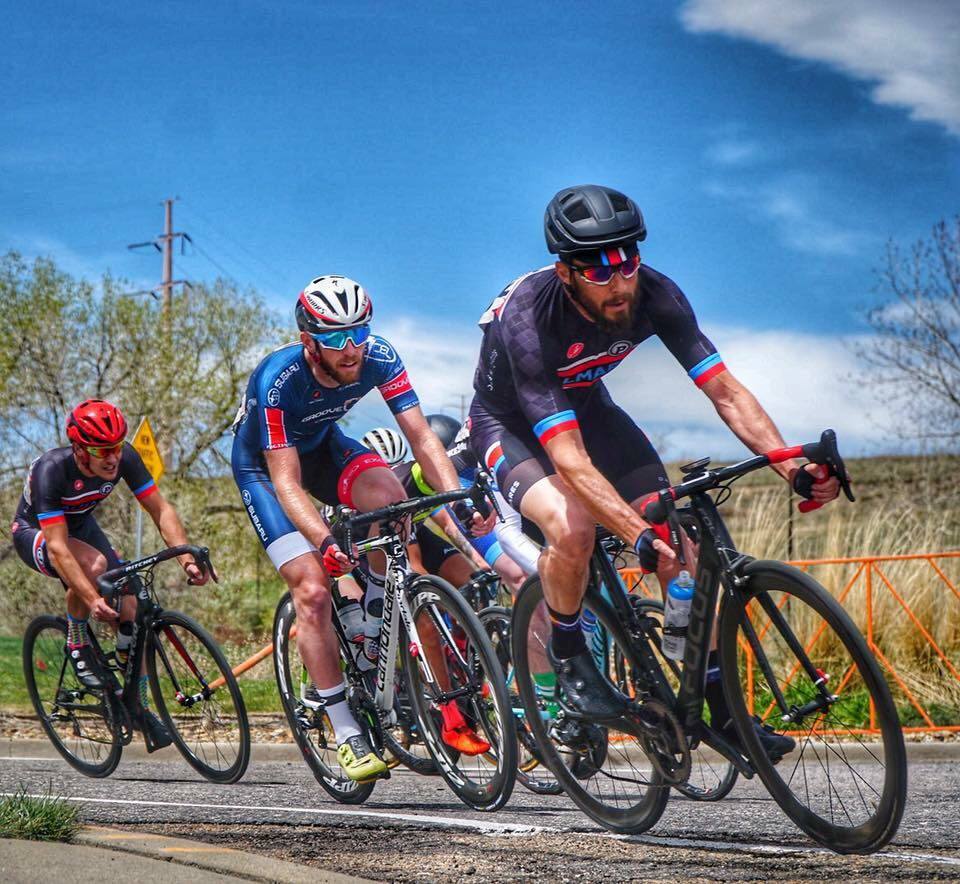A few months ago I was at a small entrepreneur conference, something I rarely go to.
The event was invited only, which meant the quality of people were incredibly high. I met people who had started 7, 8, and even 9 figured businesses. Many of them in the internet industry.
However…there was one guy I met who stuck out: Mike Brown.
Mike interested me for a few reasons:
- The company he ran wasn’t in the tech field.
- Mike’s company did tens of millions in revenue with only a few employees.
- He told me he had time to ride his bike and workout for a handful of hours each day.
- He was making a fantastic living. Unlike most tech founders who pay themselves very little in hopes of selling the company, Mike paid himself well (he came to the event in his Mclaren) while also building a valuable asset where he could earn capital gains.
After talking to Mike, I realized that I’d been in the Silicon Valley way of thinking for wayyyy to long. In SV, it’s normal to go years with little pay, 100+ hour weeks, and huge amounts of stress in hopes of a payday in the form of selling a company.
Yes, that works sometimes, but it’s certainly not the only way to create wealth.
That’s why I loved Mike’s story. Of course, I’m sure he works long hours, has huge amounts of stress (at times), and has same issues every founder has, I was super interested in his lifestyle.
So, I asked Mike a few questions…here are his answers:
What do you do for a living?
My company buys mineral rights and royalties. America is the only country in the world with private mineral ownership, a tremendous source of wealth for the owners. Recently we have branched out into angel and venture investing, helping other companies to grow as we have.
Ok – so what does that mean? Finding land, property owners and buying not the land but the minerals that the land sits on? Can you explain in layman terms?
Yes, that’s the basic concept.
In areas where energy has been traditionally produced, the surface rights and the mineral estate are usually severed – meaning different people own the surface and the oil and gas below.
Sometimes there can be hundreds of owners depending on how the area was divided up and has been passed down over the years. If an oil production company decides to drill a well in an area, they must first obtain a lease from all of the owners in that section, and in return for the right to drill and produce the hydrocarbons, they offer a royalty as compensation.
The royalty may be up to 25% of the oil and gas sold – all at no cost to the owner. Our goal is to purchase these interests prior to drilling, so essentially we are speculators.
We pay out a huge lump sum to the owners, and then we assume the risk that the producer may or may not drill a productive well on the property.
Where do you live and do you have a family?
I live in Denver, Colorado and have an incredible, understanding and supportive wife, a 5-year-old little boy and a brand new baby girl.
How old are you?
37
What type of revenues does your company do?
In 2016 our revenues were $24 million. They were actually higher ($36 million) in 2015, but we were more profitable last year due to focusing on better quality deals. We will finish 2017 with even less revenue and yet more profits.
Of the $24 million, what’s the margin? Since you’re buying and selling rights, I assume the margins are small, right?
The margin depends on so many factors, the main ones being how risky a property is and how long we want to hold it.
We are aggregators, so we also make margin by buying a lot of properties and bundling them into a larger package which would be more attractive to institutional size investors. If we bet on a fairly risky asset and we get lucky and it gets drilled quickly, the payoff can be very lucrative.
At the end of the day, it’s all about risk. When you live on arbitrage, you have to become an expert handicapper. Because of the risk profile of the asset class we are buying and selling, our margins are healthier than, say, a traditional real estate flipper, but they are consummate with our risk level.
How many people work for you?
My business partner, Jay, and I are 50/50 partners in everything that we do. We now have three employees, which are three more than we ever planned to have. We hired two of my brothers (nepotism at its finest) over the last year who are full-time buyers, and we have an executive assistant/office manager.
$24m with only 2-5 people? Insane! Are most companies in your industry like that?
It sounds like a lot, but our typical deal size is anywhere from $250,000 to $2.5MM. There are a lot of large private equity-backed companies doing way more than what we are doing, but they are significantly larger operations. I like to think that we are somewhat on the higher end of the spectrum given our size and the fact that we are self-funded.
How long have you been doing it?
We will be celebrating our 5 year anniversary in the spring.
How did you get into this business?
I had the good fortune to be born in a town with a storied history in the oil business – Midland, TX.
When I was getting out of the Navy in 2011 after flying fighters for 8 years, a mentor of mine growing up offered me a job. I worked for his company for almost two years and learned a ton about the industry. With his blessing, I founded my own company in 2013.
How much do you pay yourself?
Our business is a pass-through partnership, so I get 50% of whatever we make.
As they say, it’s not what you make, its what you keep. Taxes are hands down the biggest hurdle every year – we work 4 months out of the year just to pay the government.
We try to keep overhead pretty low. It really is easier if you think of every dollar you spend on office space, etc as coming directly out of your pocket.
For the first few years, even though it looked like I was making a lot on paper, we plowed every dime back into the business, building an asset base.
We took outsized risks and bought call options on ourselves. Now that we have built a sizable portfolio that has some good cash flow, we don’t take on as much risk, and only cherry pick the very best deals.
So, to answer the question, to sustain my current lifestyle, I pay myself about $360,000 a year. The rest gets plowed back into oil and gas deals or our other business ventures, so I never see it, except as a line on the tax return.
What’s your average day like?
I wake up at 7 every morning and have breakfast with my son and get him ready for school. This is super important quality time to me – we usually have time to play legos or read a book.
I drop him at school at 8:15 and get to the office a couple of minutes later. I fire up the espresso machine and make an americano and then take about 30 minutes to meditate, journal and kind of organize my thoughts and tasks for the day.
Some days the meditation falls out, but I definitely feel better when I am consistent.
Jay usually gets in about 9 and we sit in our “battle chairs” in our office (which is one big room with both of our desks). This is where the magic happens. We go over everything that is happening currently, and strategize, plan and make decisions on future ops. We talk things out ad naseum – we really try to go down the rabbit hole on every decision and think through as many scenarios as possible before we act.
The strategy session usually lasts about an hour, and then I will jump on my bike and ride one of our beautiful local trails, usually about 90 mins or so.
That puts me at about lunchtime, where we all like to sit in our office and eat together. The afternoon starting about 1 is where I sit at my desk and actually do work in the normal sense.
Email, calls, buy this, sell that, give guidance to my brothers on acquisitions they are looking at.
I try to wrap up at 5 and then make it home for dinner and more quality time with the family and a bottle of wine.
Also, it should be noted that while this is a pretty typical day, I also fuck off quite a bit and go skiing, or to the skatepark with my son or whatever. I try to only be at the office in the afternoon when I have legitimate productive work to do.
Sounds like a wonderful day. A lot of people feel guilty about not spending 8,9, or 10 hours a day at the computer. Did you always “work” so little and do you ever have that guilt that I’m describing?
There are a lot of ways to make money, but unfortunately, most of them involve some kind of trade of time for money. I happen to be in a business where money is correlated to risk, not time.
Think of it like a stock trader – they can spend as much or as little time as they want, but it’s the profitability of the trades they choose that determines their success.
We certainly limit our upside because we could always work harder, but the tradeoff is getting to spend our time doing the things that are important to us.
As far as the guilt factor goes, at first it was hard to accept the notion that “work” doesn’t magically occur from the hours of 8-5 Monday through Friday.
In the fighter squadron, we learned quickly that because you were gone so much, when you weren’t busy you needed to maximize time spent with family. That’s why I am so adamant about not being in the office unless I have a dedicated task or objective.
Also, as many entrepreneurs can relate, I am always working to some extent. It can be very difficult to shut it down completely – many nights I will have insomnia thinking about some aspect of business. I don’t generally mind because it is usually exciting, but I would be lying if I said there weren’t some sleepless nights based on stress.
Is your company sellable?
In the traditional sense, ie selling our brand based on revenues, no. However, as we have inventoried cash flowing assets instead of taking cash profits over the years, we can exit in a liquidity event. The best part is that we can do that and continue operating, rather than having to start over.
What do you plan on doing in the next 1, 5, and 10 years?
Currently, Jay and I are working on a book about how to apply tactics from the fighter pilot community to business.
Unlike our tech startup peers, we are not innovators, but instead, we apply our operational expertise in order to create a competitive advantage. We are passionate about helping other entrepreneurs achieve the success that we have been fortunate enough to experience, and so we are spending time helping to mentor the companies we have invested in.
I think that in the coming years we are going to see a backlash against the rapid growth, who cares about profits, let’s just get acquired mentality (no offense to your primary audience).
The next phase for me will be launching a platform to help people create and grow “real” business. Not to discount the incredible things coming out of Silicon Valley, but there are many ways to be an entrepreneur, and I believe in general that boring old-school companies don’t get the credit they deserve in the age of the unicorn.
And last question, what’s one thing you wish you knew before starting your company?
Oh man, I could write a book with all the lessons learned the hard way <shameless plug>. I think one of the hardest lessons to learn is that as you achieve some degree of success, people will come out of the woodwork who want to partner with you and “help” you grow.
They may even appear to be more successful than you. Unfortunately, most people just want to hitch their wagon to a rising star. Because we value integrity above all else, we spent a long time and a lot of heartache learning that most people do not.
So if I could give one piece of advice to up and coming entrepreneurs, it would be to guard your business (and your equity). Be very careful about who you partner with – do not take money from someone simply because you feel your business needs the investment.
In general, bootstrapping is harder in the short run, but way less painful than bringing in the wrong partner.
—————-
Want more of these? Sign up with your email below and you’ll know when I do it again.
Mike’s Twitter (holler at him!): twitter.com/mb_abides
For the record, I only do stuff my audience likes. So, if you want more stuff like this, tell me on Twitter: https://twitter.com/theSamParr
And finally, make sure to sign up for The Hustle (my fulltime job!) for more good shit like this: https://thehustle.co/





Great short article, keep them coming!